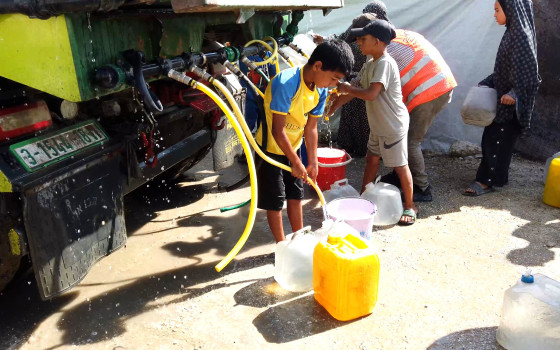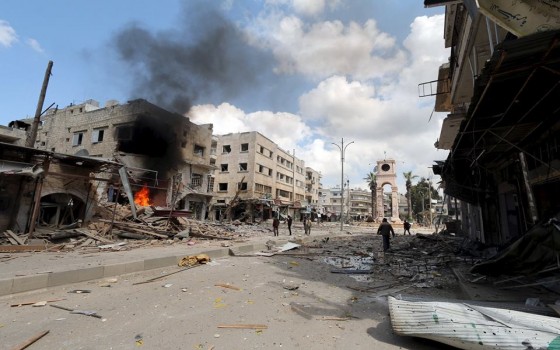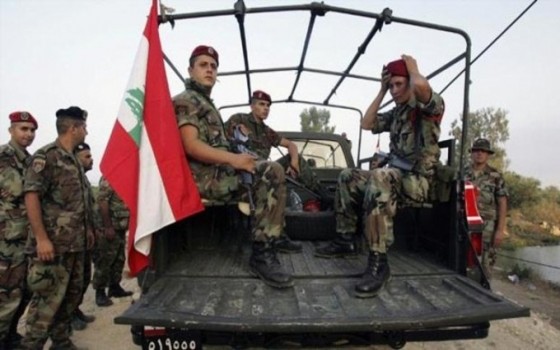
International organizations warn: Gaza children will die of thirst unless fuel is available to pump water.

- Europe and Arabs
- Saturday , 21 June 2025 11:41 AM GMT
Geneva - Amman: Europe and the Arabs
The United Nations Children's Fund (UNICEF) said that Gaza is facing a "man-made drought" as water networks, especially drinking water, collapse. It warned that children will die of thirst if the resumption of fuel supplies for pumping, treating, and distributing water is not allowed. This was stated by UNICEF spokesperson James Elder, who was speaking to reporters in Geneva from the Jordanian capital, Amman, following a visit to the Gaza Strip. He reported that no fuel has entered Gaza for more than 100 days due to strict Israeli restrictions on the limited humanitarian aid allowed in.
In this context, Mr. Elder said that Gaza is suffering severely now, with only 40% of drinking water production facilities still operating. He warned that without fuel, "every single one will cease to function within weeks."
"Severing means of survival"
Mr. Elder said that diseases are already worsening "and chaos is intensifying," but he emphasized that the water crisis is not logistical or technical, but political. He added: "In Gaza, deprivation has become policy. If there is political will, the water crisis will be alleviated overnight. Fuel means water can flow from hundreds of groundwater wells and restore supplies literally within a day, but time is running out.
Mr. Elder said everyone he saw on the streets of Gaza was carrying whatever they could to try to restore water, adding that donkeys had replaced trucks at the remaining production points. “Even the donkeys are slowing down, as they barely have enough food to survive,” he added.
He said that since the power outage in Gaza, fuel has also been sustaining Gaza’s devastated healthcare system, powering generators that support oxygen production, life support machines, and incubators, and is also used in ambulances. “The fuel blockade not only cuts off supplies, but also cuts off the means of survival,” he said.
Another Man-Made Crisis
Just as the water crisis is man-made, so too is the malnutrition it fuels, according to the UN official, adding that these two crises “feed off on each other, creating a deadly vicious cycle.” Since the beginning of the year, more than 110 malnourished children have been admitted to treatment centers every day.
To give a clearer picture of the situation on the ground, On the ground, Mr. Elder quoted a friend in Gaza who said, "We've learned to live without so much—without our homes, without our loved ones. We've even learned that we can live without food for a week or two. But we can't survive without water." He said UNICEF is very clear that this is "the most critical moment Gaza has experienced since the war on children began," adding, "This is a deeply tragic situation. There's a near-total blockade. Humanitarian aid is being marginalized. The daily killing of girls and boys in Gaza goes unnoticed." Now, a deliberate fuel crisis is cutting off the most basic element for Palestinian survival: water.
"A False Equation"
In response to journalists' questions, Mr. Elder said that the so-called "Gaza Humanitarian Foundation" is "exacerbating the situation." He said that Gazans are facing starvation with "a fatal choice, forced to remain in very small enclaves, where most people cannot reach distribution points that are officially designated as fighting areas."
Mr. Elder also noted that the most vulnerable groups cannot access these few sites and do not receive aid amid the chaos and rule of the strong over the weak. He emphasized that there is a lack of clarity about when these sites will be opened, and that they are considered military zones, warning that this puts people at risk if they enter these sites while they are closed.
He said: "There have been mass casualty incidents around these sites when they were closed. Contradictory statements have been issued. Contradictory statements from residents entering a combat zone can be deadly.
Mr. Elder said that saying the current distribution system is better than nothing is a "false equation." He added, "We are not comparing to nothing. We are comparing to humanitarian aid systems that have worked since World War II. We are comparing to what we saw in Gaza two months ago."
He said that when the UN says that aid must be principled and neutral, these are "not just nice words," but rather the reason communities trust the organization.
He pointed out that the organization and its agencies are currently providing services in Gaza, and no civilians are killed at any time. "So the problem is that a system that has been tried and tested for 70 years is being marginalized."












No Comments Found